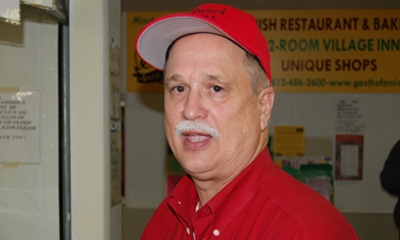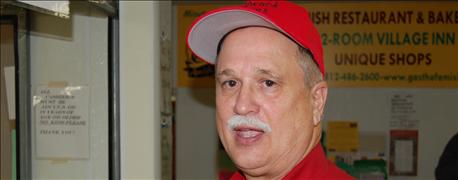
Many wondered what Don Villwock would do next. The Edwardsport farmer retired as president of Indiana Farm Bureau Inc. in 2015, and finished an unsuccessful bid to lead the American Farm Bureau Federation in January. Those who appreciate Villwock’s leadership skills figured it wouldn’t be long before someone who needed his expertise would come knocking on his door. They were right.
Villwock began his new role for Purdue University as special assistant to College of Agriculture Dean Jay Akridge Aug. 1. It’s a 50% appointment, set up on a contract basis.

NEW CHALLENGE: Don Villwock didn’t stay retired very long. He is tackling special projects as an assistant to Purdue Dean of Agriculture Jay Akridge.
“Jay and I began talking last spring,” Villwock notes. “There are things he would like to accomplish which need nurturing, and there was no one with spare time to work on them.
“That’s where I come in. I have 12 projects on my list already. It’s taking time adjusting to how academia works, but I’m enjoying it.”
Here is a brief summary of three of Villwock’s top priorities on his list.
1. Reenergize the connection between Purdue and Vincennes University.
Purdue and Vincennes have connections going back to the 1950s, Villwock says. Many students have started an ag career by spending two years at Vincennes and then finishing a degree after transferring to Purdue. Traditionally, Vincennes has been a community college with two-year programs that offer associate’s degrees.
“There have been fewer students choosing the Vincennes to Purdue four-year route recently,” Villwock says. “Enrollment is down at Vincennes in general.”
Two ag instructors, Chuck Mansfield and Susan Brocksmith, teach at Vincennes. Villwock is working with them to identify causes of the changes, and put a plan together to turn things around.
“Both Dean Akridge and the Vincennes president want to put new energy back into the relationship,” Villwock says. “We will develop a plan.”
2. Provide real-life farm experience for Purdue ag students.
About 60% of all Purdue ag students don’t come from a farm, Villwock says. The number coming from a full-time commercial farm is likely lower. Yet companies that hire ag graduates typically prefer those with farm experience. Akridge’s idea is to develop a summer internship program that would place nonfarm students on Indiana farms as employees.
“Our goal is to find 20 farmers who are willing to work with us to start this program,” Villwock says. “Students will be employees and be paid by the farm while there, but we want to make sure they learn more than just menial tasks.
“We want farmers willing to spend time exposing them to the management side of farming.”
3. Ramp up the ag education training program at Purdue.
The ag teacher shortage is at crisis level in Indiana. Not all schools that wanted to offer ag could find instructors this year. “The dean recognizes that we need to attract more potential ag teachers as students to Purdue, and strengthen the program,” Villwock says.
Villwock’s role now is visiting with ag teachers and ag business around the state to collect input on what issues need to be addressed before Indiana can put more ag teachers in schools. At the same time, Villwock says there must also be emphasis on retaining teachers once they enter the profession.
About the Author(s)
You May Also Like




